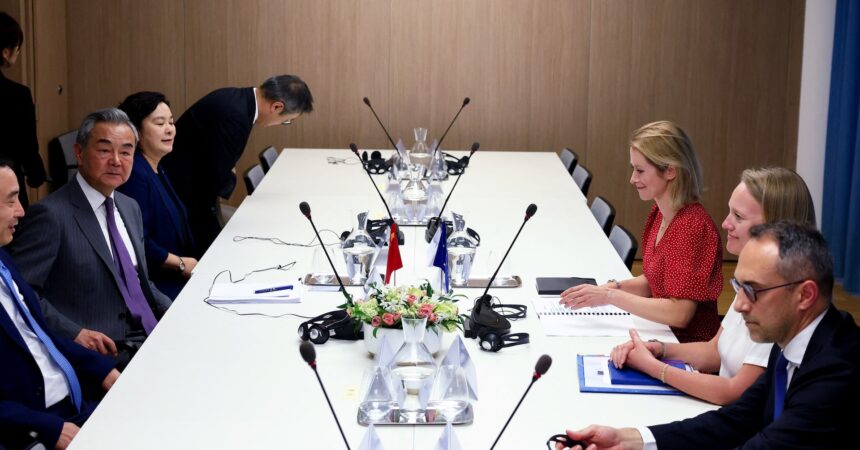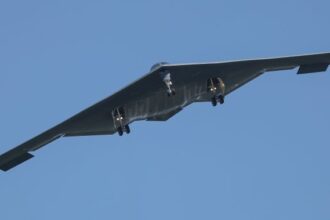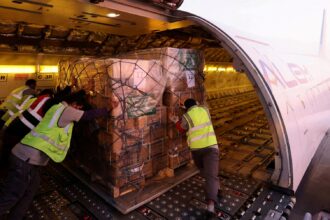The European Union has launched a high-stakes diplomatic offensive this week, confronting China over its domination of critical rare earth minerals while simultaneously tightening the economic noose around Russia’s war machine. During a series of tense meetings in Beijing, EU officials delivered an unambiguous message: China’s near-monopoly on these vital resources poses an unacceptable security risk to European industries.
“We cannot build a sustainable future while depending on a single source for the very materials that power our green transition,” said EU Trade Commissioner Valdis Dombrovskis during the opening session. His words cut through diplomatic niceties, signaling a profound shift in EU-China relations that could reshape global supply chains.
At the heart of this confrontation lies China’s overwhelming control of rare earth processing – currently standing at approximately 85% of global capacity. These minerals, despite their name, aren’t particularly rare geologically, but their processing requires specialized knowledge and infrastructure that China has meticulously developed over decades. They’re essential components in everything from electric vehicle motors to wind turbines and advanced weapons systems.
The EU delegation presented detailed plans for the 2025 European Critical Materials Act, legislation designed to dramatically reduce dependency on Chinese rare earths by developing alternative supply chains through partnerships with Australia, Canada, and several African nations. The proposal includes €3.5 billion in direct investment to jumpstart European processing capabilities and stringent new requirements for European manufacturers to diversify their supply sources.
Chinese officials responded defensively, with Commerce Minister Wang Wentao warning that “attempts to politicize trade relations will harm global economic recovery.” Beijing has subtly threatened potential export restrictions if pressured too aggressively, knowing the leverage their market position provides.
Simultaneously, EU diplomats addressed China’s continued economic support for Russia, presenting evidence that Chinese companies have supplied dual-use technologies helping sustain Moscow’s military operations in Ukraine. The upcoming 2025 sanctions package, expected to be finalized by March, will target specific Chinese entities providing such support with unprecedented financial penalties.
“China cannot claim neutrality while simultaneously enabling Russia’s military aggression,” noted EU foreign policy chief Josep Borrell. “Our measures will be precise, targeting those directly supporting the war effort while protecting legitimate trade.”
Economic analysts predict significant market disruptions as these policies take shape. “We’re witnessing the fragmentation of global supply chains along geopolitical lines,” explains Dr. Elena Korosteleva, professor of international politics at the University of London. “Companies will face higher costs and complexity as they navigate these new requirements.”
For Canadian businesses, these developments present both challenges and opportunities. The country’s abundant rare earth deposits could position it as a critical alternative supplier, but developing processing capacity requires substantial investment and environmental considerations.
The confrontation marks another chapter in what political observers increasingly describe as a fundamental realignment of the global economic order. The era of unfettered globalization appears to be yielding to one where economic security and resilience take precedence over efficiency and cost considerations.
As these new policies take shape through 2024, companies across sectors must prepare for a more fragmented global economy. The question now facing governments and businesses alike: can we balance legitimate security concerns with the benefits of international economic integration, or are we witnessing the beginning of a new era of economic nationalism?










